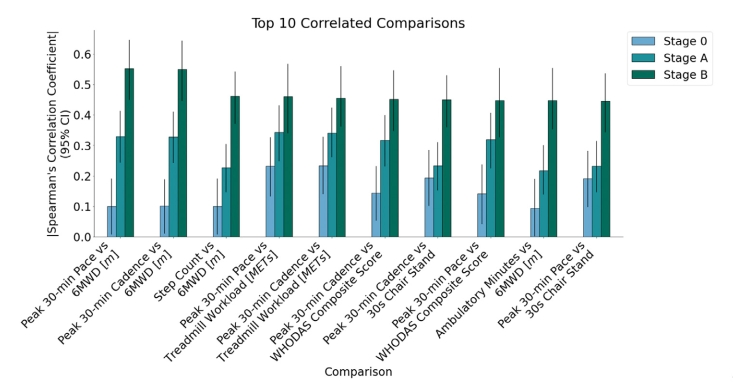
Introduction
Heart failure (HF) poses significant challenges in early detection and monitoring, often leading to adverse outcomes. Globally, in 2019, an estimated 56.2 million individuals were living with HF across 204 countries according to a report from the American Heart Association (AHA). However, this number likely underestimates the true prevalence due to data and diagnostic limitations in under-resourced regions. Detecting HF before symptoms manifest is crucial but remains difficult due to logistical and economic barriers in community settings. Real-world walking behaviours and early-stage HF are closely linked, offering new ways to monitor and manage heart health. The Project Baseline Health Study (PBHS) has provided valuable insights into how wearable technology can track physical activity and predict HF risk. Shin et al. explored the potential of digital walking measures to enhance early HF monitoring, bridging the gap between subclinical and clinical stages.
Understanding Heart Failure and Its Stages
HF is a progressive condition that can lead to disability and death. Early detection is crucial for preventing the disease from becoming symptomatic. The American College of Cardiology and the AHA classify HF into four stages: A, B, C, and D. Stages A and B represent early, asymptomatic phases, while stages C and D indicate more advanced, symptomatic disease.
The Role of Wearable Technology
Studies have highlighted the significance of declining physical activity as a precursor to HF development. Leveraging wearable technology, researchers have explored new avenues to assess physical activity patterns. These measures offer valuable insights into daily functioning, complementing traditional in-clinic assessments. Wearable devices, such as the Verily Study Watch, have significantly changed how physical activity can be monitored. These devices can capture detailed data on walking behaviours, providing a continuous and objective measure of physical function. In the PBHS, participants wore these devices to track their daily walking activities, offering a real-world perspective on their physical health.
Key Findings from the PBHS
The study focused on 1,265 PBHS participants, representing 50.6% of the total cohort. The analysable cohort included individuals with HF stages 0 (healthy), A, and B, as well as those with adaptive cardiac remodelling. Researchers found that decreases in 17 out of 18 walking measures were associated with a higher likelihood of stage B HF. For instance, a reduction of one standard deviation in peak 30-minute pace led to a 2.10-fold increase in the odds of developing stage B HF.
Correlation with In-Clinic Measures
The study also examined the relationship between digital walking measures and traditional in-clinic assessments. The strongest correlations were observed in stage B participants, followed by stage A and stage 0. This suggests that wearable technology can complement in-clinic tests, providing a more comprehensive view of a patient’s physical function.

Implications for Healthcare
The findings from the PBHS highlight the potential of digital walking measures to enhance early HF monitoring and intervention strategies. These measures could serve as a patient-centric, non-invasive tool for longitudinal monitoring, complementing traditional assessments and improving patient outcomes. By integrating digital measures with traditional assessments, healthcare providers can develop more personalised and effective care plans. This approach can help identify individuals at risk of HF and intervene before the disease progresses.
Conclusion
Real-world walking behaviours, as captured by wearable devices, offer valuable insights into early-stage HF. The results of PBHS on wearable technology demonstrates that these digital measures can complement traditional in-clinic assessments and patient monitoring without replacing the function of check-ups and in-person care. However, they are promising tools to provide a more holistic approach to cardiac care and patients’ overall quality of life. As we move towards a more patient-centric approach in healthcare, innovations in wearable technology facilitate enhanced early detection and management of HF.
